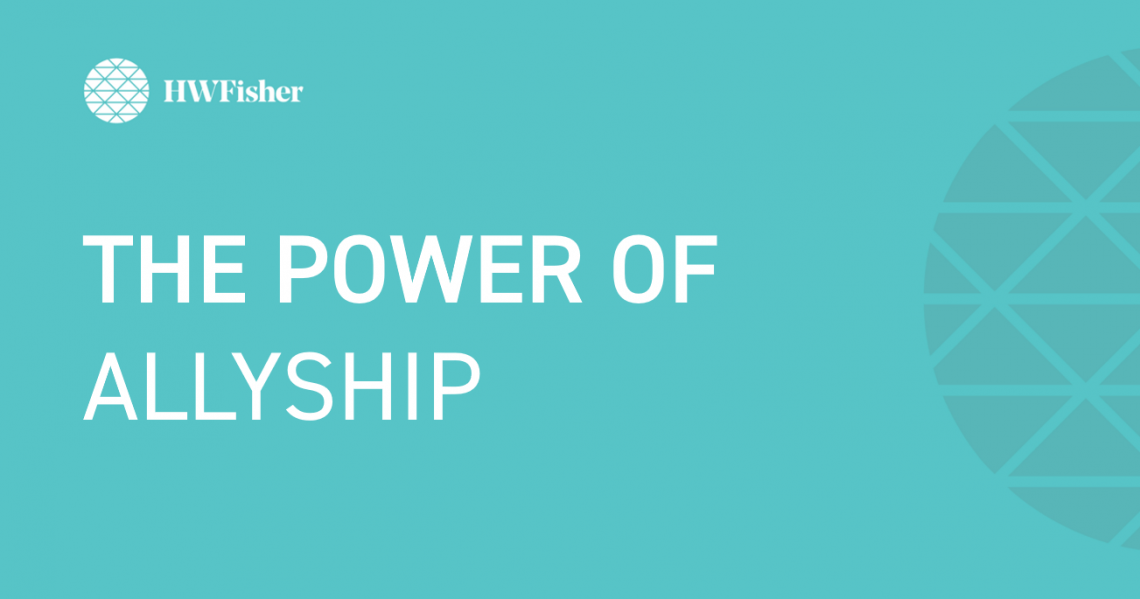
Before we dive into this topic, we have to define what we mean by allyship – here is a formal definition:
Allyship – the practice of emphasizing social justice, inclusion, and human rights by members of an ingroup, to advance the interests of an oppressed or marginalized outgroup.
What’s important with this definition is that it is a verb, not a noun. It’s a choice people make. Allyship is the notion that members of one group can help others from under-represented groups to succeed. Depending on the context, that help can come in the form of mentoring, counselling or even financial support in some cases. The major point is that everyone has the ability to be an ally and to find new opportunities to make positive change.
Why is it important? We’re all aware of some very recent examples where the power of allies matter. International Women’s Day a few weeks ago brought up some of these conversations, particularly when it comes to addressing the gender pay gap and equal opportunities. Racially motivated attacks like the recent Atlanta shootings in the US have also shone a renewed spotlight on the need for allyship – both in personal and professional spaces.
In the workplace, we have a particularly key role to play. Until a few years ago, our firm was arguably seen as “male, pale and a bit stale”. May 2018 was a watershed moment for us when we went through a management buyout. We recognised we needed to change.
It’s early days, and as a profession we still have a lot to learn. This is why we were delighted to announce a new partnership with the WealthiHer network. We stand alongside the values of WealthiHer as part of a mission to drive the economic advancement and empowerment of women on a global scale. As part of this partnership, I was delighted to be invited to a panel discussing the power of allyship – it was enlightening to discuss the individual responsibility we all have and learn from the insights of my fellow panellists. I am sharing some of these key takeaways in the hope we can all continue to learn, and be part of, this important conversation.
In conclusion, to be a true ally – you must be open to learning, comfortable with being uncomfortable, and recognise we all have an opportunity to do better.
We’re looking forward to continuing this conversation, including through our partnership in the work WealthiHer are doing. You can find out more here. I would always be happy to have a discussion or start a conversation if this is a topic that is of interest – so, please don’t hesitate to get in touch.
We’d love to hear from you. To book an appointment or to find out more about our services: